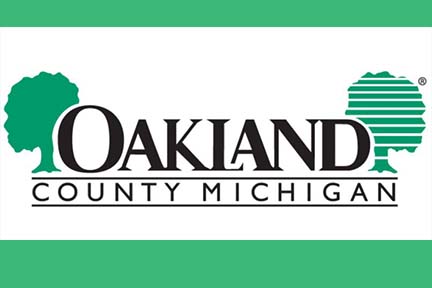Oakland County Takes Step Toward County Executive Coulter’s Carbon Neutrality Goal
- Oakland County is among 15 cities and counties participating in the U.S. Green Building Council’s 2022 LEED for Cities Local Government Leadership Program.
- Oakland County has a goal of reaching carbon neutrality by 2050.
- County government is already reducing energy consumption on its campus including a LEED Gold certified building.
Pontiac, Michigan – The U.S. Green Building Council (USGBC), developers of the LEED green building rating system, has selected Oakland County as one of 15 cities and counties nationwide to participate in the 2022 LEED for Cities Local Government Leadership Program.
This program brings together diverse local governments from around the country to support communities seeking LEED certification. The program provides networking opportunities, technical assistance, and access to educational resources.
“Ensuring our county government campus is operating in the most energy efficient and environmentally sound manner is the right thing to do and a top priority,” said Oakland County Executive David Coulter. “Getting this LEED certification is one more important step toward our goal of reaching carbon neutrality by 2050 and contributing to a cleaner, healthier county for future generations.”
Oakland County has already taken several steps toward the Coulter administration’s environmental sustainability goals. The county executive appointed Erin Quetell to be the county’s first environmental sustainability officer. She is managing efforts to develop and implement sustainability practices at the county.
Oakland County has also reduced its energy consumption by about 45 percent at the LEED Gold certified terminal building at Oakland County International Airport in Waterford. Plus, the county is saving both energy and money after converting outdoor lighting on its government campus from incandescent to LED lights.
“Local governments have the ability to make a big impact and serve as an example of sustainability achievement,” said Peter Templeton, president and CEO at USGBC.
Royal Oak was the first city in Michigan and the third in the United States to achieve LEED v4.1 certification in 2020. The city implemented practical and measurable sustainability strategies to improve the quality of life for residents.
In partnership with Bank of America, the program has provided more than $2 million to promote action on climate change, resilience and social equity through LEED for Cities certification.
“USGBC is a leader in supporting environmentally sustainable buildings, cities and communities and we’re proud to build on our partnership of more than 25 years,” said Rich Brown, environmental program director at Bank of America. “Creating thriving, resilient communities where residents have sustainable places to work and live meets this moment for climate action and building healthy living environments.”
The 15 local governments participating in the 2022 program represent a population of more than three million Americans. Joining Oakland County are Amesbury, Mass.; Cape Canaveral, Fla.; Columbia, S.C.; Cutler Bay, Fla.; Davidson, N.C.; Dayton, Ohio; Fort Lauderdale, Fla.; Henderson, Nev.; Issaquah, Wash.; Ithaca, N.Y.; La Crescent, Minn.; Reno, Nev.; State College, Penn., and Tucson, Ariz.
Today, more than 130 cities and communities have achieved LEED certification. LEED provides a framework for local governments to address energy, water, waste, pollution and carbon. In addition to environmental factors, the rating system considers social and economic indicators, such as health, equity, education and prosperity.

